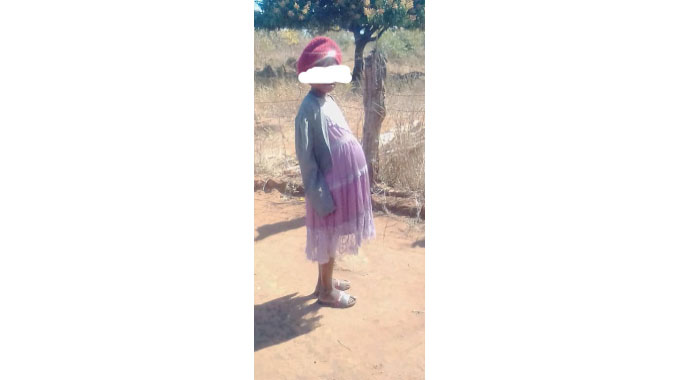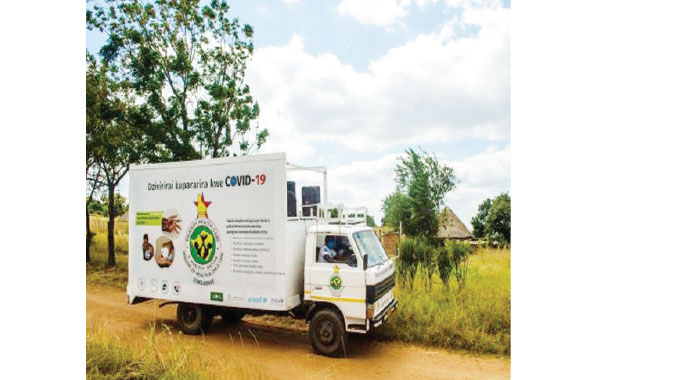A child is not a bride

Andile Tshuma
A child is a child and should never be a bride.
This week our sister publication carried a tragic story of a 14-year-old girl, who died in labour following complications.
It is so tragic one cannot even think of what pain Memory Machaya went through after being denied access to a health facility.
Pressure is now mounting on law enforcers to bring to book leaders of the church where Machaya died during childbirth last week in Bocha, Marange, in Manicaland province.
In her death, Memory has become the poster child of child marriages and maternal deaths in the country.
She was failed by society, by the church and even by her own family. How does a 14-year-old carry a pregnancy full term and yet no case of rape is reported to the police. Justice should be served.
Unfortunately, she is not the only one, her case represents thousands of girls in her situation who are also failed by systems in society, including the church, when it condones such.
This issue has sparked public outrage and Zimbabweans from multiple spheres are uniting in one voice, demanding justice for Memory.
Thousands of people have since signed an online petition, seeking justice for the deceased little girl.
Memory was reportedly denied hospital heath care by male senior members of the apostolic sect, who resorted to prayers and ‘holy water’ and kept her at the shrine until her death due to labour related complications.
A moving statement from the African Union Goodwill Ambassador for ending child marriages this week called on authorities to take a strong stand and ensure that justice was served.
Covid-19 has adversely affected lives of many children and their families and has forced Government to take mitigatory efforts such as school closures and lockdowns. These measures have unfortunately affected children’s routines and support systems.
Pandemic control measures that do not account for the gender specific needs and vulnerabilities of young women and girls may increase their risk of sexual exploitation, including child marriages.
Some families are sacrificing their daughters for a few beasts.
Children’s rights experts and activists say the Covid-19 pandemic could reverse some of the gains achieved in keeping girls in school and ensuring they were protected from social vices such as child marriages.
Gaps in Zimbabwe’s child protection system result in lack of protection for victims of child marriage and makes it difficult for affected girls to seek redress.
For example, girls have limited information about their rights as they often do not have money to travel to where they can seek protection from authorities, and when they do, the authorities often dismiss their concerns as “a family matter”.
The deepening poverty owing to loss of livelihoods brought about by Covid-19 pandemic is driving a number of families to marry off their underaged daughters.
This is despite the fact that the country outlawed child marriages in a landmark ruling in 2016.
As a survival mechanism to navigate the difficulties presented by the raging pandemic, some families are throwing caution to the wind and offering their daughters for a song.
The lockdown is freezing the source of livelihoods of many rural households.
Lobola, or dowry becomes a temptation as it is an extra incentive that comes after reducing the mouths that a family has to feed on the dinner table. More families continue to give up their daughters no matter how bright their futures may appear.
Schools were places of refuge and provided sanctuaries for young girls and ensured that their dreams of brighter days ahead were realised.
There is a lot of support from teachers and schoolmates within the school community.
Support organisations are finding it difficult to penetrate some communities to help bring vices to an end due to travel restrictions under lockdown.
A UNICEF report released in April projected that the Covid-19 pandemic could push 86 more million children into poverty by the end of 2021.
This means that millions of girls will be vulnerable and at risk of being forced into child marriages.
The same report projected that the pandemic could lead to an extra 13 million child marriages globally over the next decade.
Child marriages are common in indigenous apostolic churches, charismatic evangelical groupings, which mix Christian beliefs with traditional cultures and have approximately 1,2 million followers around the country.
The Zimbabwe Council of Churches and the Apostolic Christian Council of Zimbabwe acknowledge that the practice was more prevalent among apostolic followers than other religious groups.
Some apostolic church doctrines require girls to marry between the ages 12 and 16 to prevent sexual relations outside marriage. As soon as a girl reaches puberty, any man in the church can claim her for a wife and herein lies the tragedy.
Africa has 15 of the 20 countries in the world with the highest rates of child marriages. According to UNICEF, if the current trend continues, the number of child brides in Africa is expected to double by 2050.
While Zimbabwe has made great strides in protecting the Girl Child, more needs to be done to reduce child marriages, which remain at five percent for women under 15, according to the 2019 Multiple Indicator Cluster Survey (MICS).
New multi-sector, nation-wide research shows that Zimbabwe recorded a decrease in maternal mortality from 614 to 462 maternal deaths per 100 000 live births since 2014, and an increase in full immunisation coverage to 85 percent.
Zimbabwe’s Government and religious leaders should recognise that comprehensive sex education is essential to prevent child marriages and protect girls from HIV transmission and early childbearing.
Policy makers, activists and the community at large should ensure that our girls are safe and that in no society should a child be made a bride.
The tragic end of Memory’s life must catapult everyone into action to ensure that girls are protected. True justice must ensure that all perpetrators are brought to book and child marriages are stopped forthwith ended. -@andile_tshuma











Comments